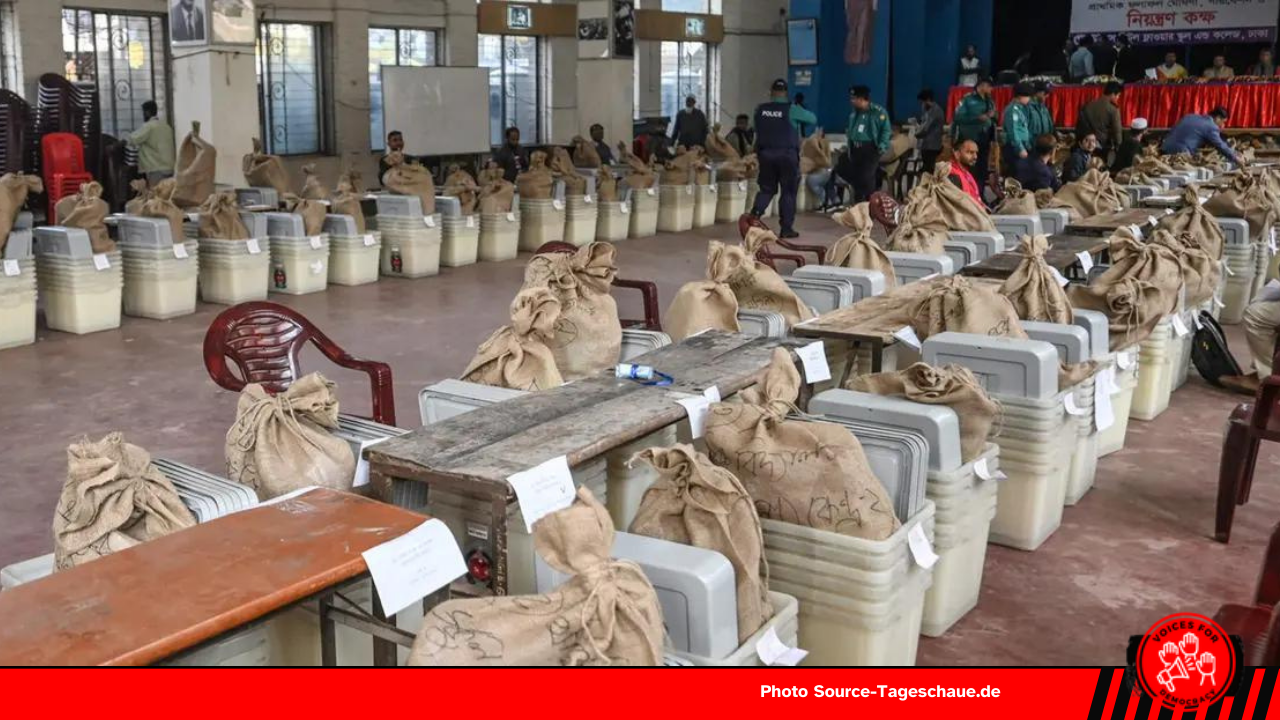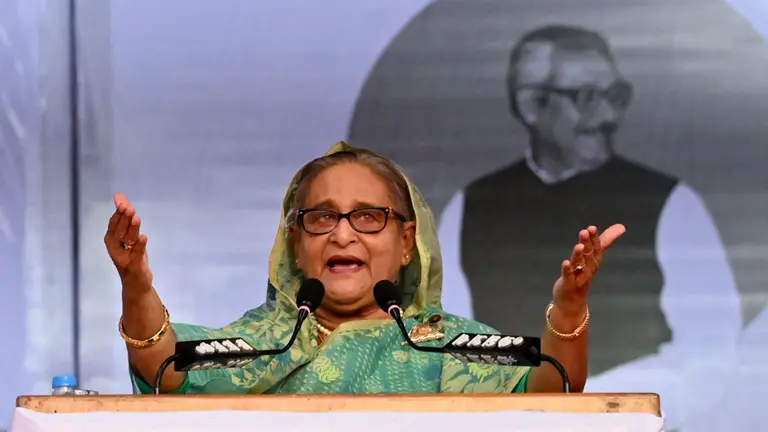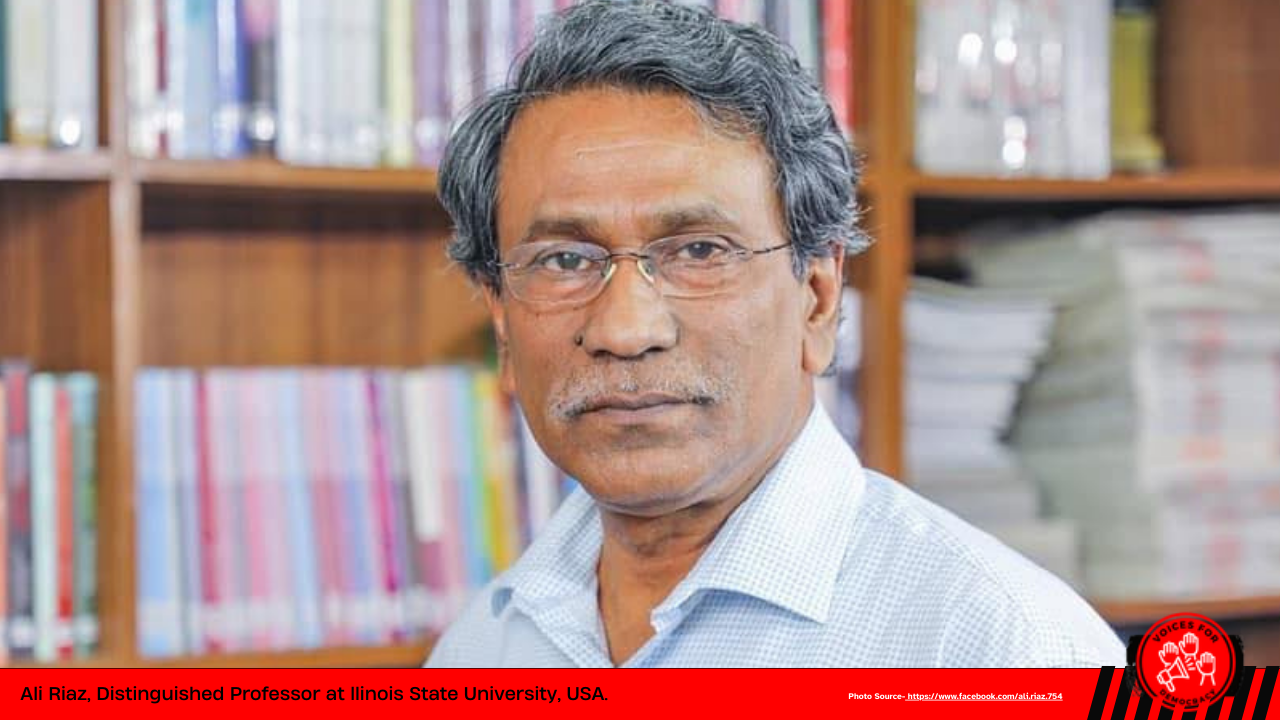
The largest opposition party wants to boycott the parliamentary elections in Bangladesh. Prime Minister Sheikh Hasina has arrested thousands of opposition members. A political expert believes the outcome of the election is already decided.
The clock is ticking down to Election Day. In the backyard of the building of the Bangladesh National Election Commission in Dhaka, carpenter Zahirul Islam Apon and his colleagues are sawing and hammering on the last wooden decorations. The election results are to be announced here on Sunday evening. The carpenter hopes for a peaceful election day:
“The prevailing symbol is the boat. The boat will win, it has the highest chance.”
The boat is the symbol of the ruling party, the Awami League. Their election posters with the portrait of an older woman wearing a headscarf hang all over the capital: Prime Minister Sheikh Hasina. She has been leading Muslim Bangladesh with its more than 170 million inhabitants for three terms – now for 15 years. And now it looks like a new term for the 76-year-old. Because the election campaign was mainly tailored to her.

A Balance of Light and Shadow
In December, the charismatic politician was celebrated by her supporters in front of a holy Muslim shrine. On this day, too, she wore one of her distinctive shimmering saris. In front of reporters, she said with a view to the election: “If the people of Bangladesh vote for the boat and we manage to form the government again, we will develop the whole country and bring prosperity.”
Sheikh Hasina has initiated many infrastructure projects in Bangladesh, including the construction of bridges and tunnels. She has also overseen growth in the textile industry. However, the pandemic and the war in Ukraine have weakened the country, which is constantly dependent on international aid. Recently, high inflation has also been a problem for many.
Her supporters praise her for her good relations with foreign countries, including India, China, and the United States. The United States in particular is considered an important partner for the South Asian country – as the largest export market for textiles. However, it is precisely the USA that is now loudly criticizing the human rights violations in Bangladesh and the restrictions on freedom of expression and the press. The United States has also warned against unfair and non-free elections. They have also recently warned of elections that are not fair and free.
Opposition Members Don’t Believe Election Will Be Fair
Leading opposition figures and activists took to the streets in Dhaka on Friday ahead of the controversial parliamentary election. The largest opposition party, the Bangladesh Nationalist Party (BNP), has called for a boycott of the election and a general strike at the weekend. The current government cannot guarantee a fair vote.
Ashok Kumar Debnath from the National Election Commission firmly rejects this accusation: “The main opposition party is not participating in the election,” he said. “But the election itself will be fair.” More than 200 independent observers from abroad will monitor the vote. The police and army will ensure that everything runs smoothly. Nevertheless, some expect street protests by the opposition.
Expert Sees Fateful Election For The Country

For political expert Ali Riaz from Illinois State University, the election in his home country is a farce. The outcome is already determined. “This is being driven by the prime minister and her party, but especially by her herself. Because power has been concentrated in the hands of the prime minister through constitutional and non-constitutional measures,” he says. “Bangladesh has therefore increasingly experienced a democratic regression since 2009.”
20,000 opposition members and activists are now in prison. This election will have a decisive impact on the future of the country, whether there will continue to be different parties or Bangladesh will become a one-party state.
In the evening on the street in a residential area of the capital: Lamia is out with her brother to buy cat food. The 20-year-old is going to vote for the first time. “At the moment, the election situation is not democratic, but I feel like I’m going to vote and hope for the best.” On the streets, she mainly sees posters of Sheikh Hasina’s Awami League.
Despite this, Lamia is convinced of the long-serving prime minister. She believes that the prime minister has achieved a lot and will work for the youth, the young woman believes. A little further away, rickshaw driver Mohammad Zahidul Islam is waiting for customers. He earns about five euros a day.
“In the past, there was always a festive atmosphere before the election, people were excited,” says Lamia. “Now it has become a one-party election, and I don’t know anyone in my area who will exercise their right to vote.” It is too expensive for him to travel to his village to register to vote. Above all, he hopes that food prices will fall soon.
Tea seller Mohammad Ratan also hopes for this. He will definitely go to the polls and close his stand. He hopes that everyone can cast their vote peacefully: “Everyone has a duty to use their right to vote, so they should do it.”
Author: Charlotte Horn | Published On: 07.01.2024, 04:11 AM | German News Portal: Tagesschau | Germer Version Source: Link
